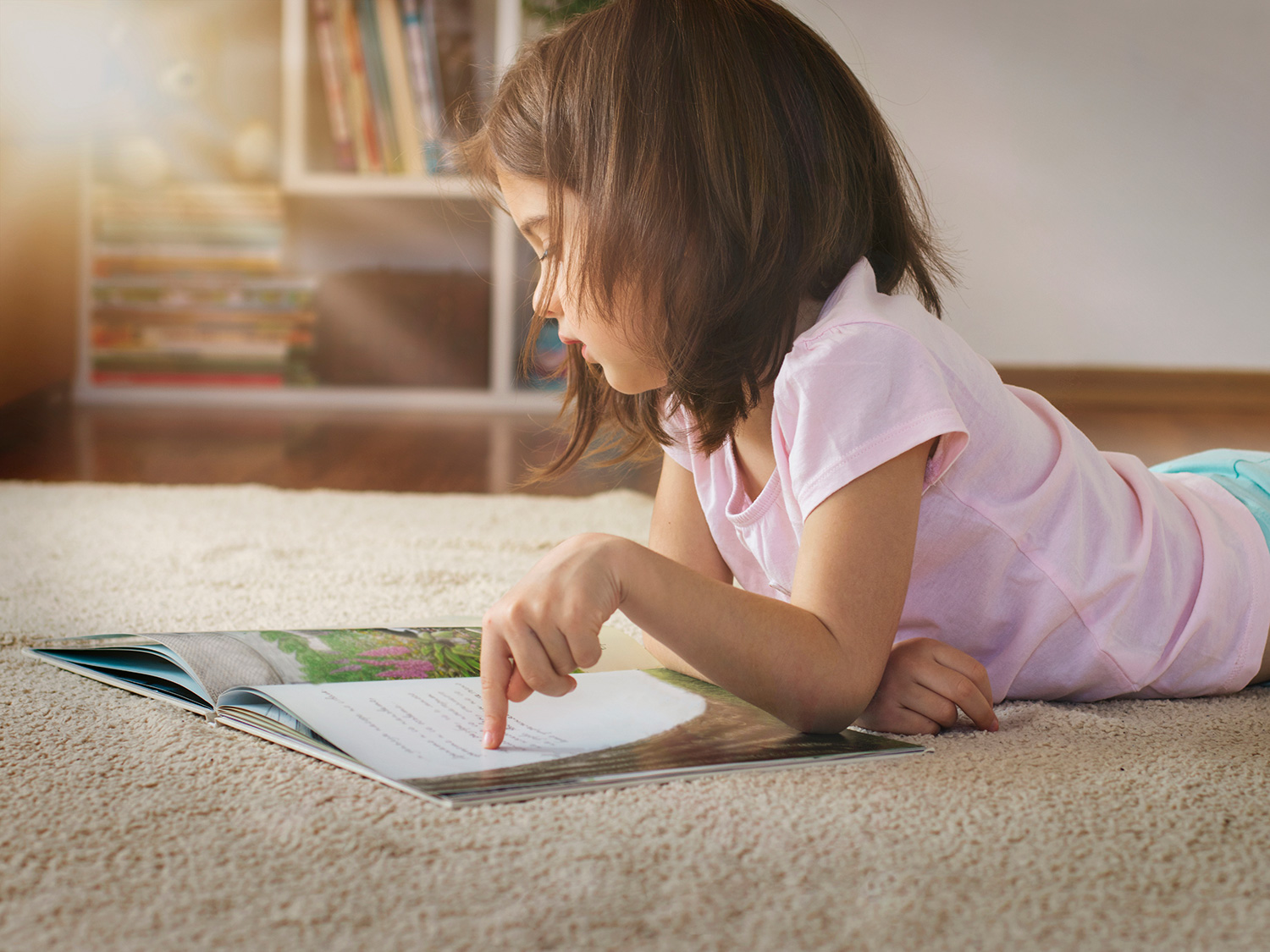Q: How old should a child be when he or she learns to recognize letters?
A: Most children learn to recognize letters between ages 3 and 4. Typically, children will recognize the letters in their name first. By age 5, most kindergarteners begin to make sound-letter associations, such as knowing that “book” starts with the letter B.
Q: How old should a child be when he or she learns to read?
A: By age 6, most 1st graders can read some words aloud with ease. Typically, children recognize their names and some sight words. At this age most children can sound out some letter combinations. By 2nd grade, most children are able to sound out a simple book.
Q: What is phonics?
A: Phonics is simply the method of teaching someone to read by sounding out letters and letter groups. Phonics practice can involve reading books with only simple words, many of which rhyme or have similar letter patterns.
Q: How do you read with a child who is just learning letters and sounds?
A: To introduce the concept of letters and sounds, start by showing your child the letters in her name. Name each letter and sound out each sound. You can do this with other words that interest her (mom, dad, baby, etc.). Once your child knows most of the letters in the alphabet, point to letters in the books you read with her, and ask her what they are. Show her how you sound out simple words:
This word starts with “D” which is the “duh” sound. Then there’s an “o” and a “g”. The “g” makes a “guh” sound. “Duh”-o-“guh”. Do you think that word is dog?
As your child learns to read, try alternating pages in a simple book — you read one page, she tries to read the next.
Q: What are appropriate books for my child’s age and/or level?
A: Using Lexile Measures or Leveled Reading, your child’s school has probably determined the level at which your child is reading. Your goal is to help your child pick books that are challenging, but not too hard to enjoy. Librarians, teachers, and online databases like those at www.lexile.com can help.
Q: What is leveled reading?
A:Leveled reading is a way to match a reader to a book that is at the just-right level for him. An emerging reader needs to be challenged to read more difficult books, but the books can’t be too hard for him to attempt on his own. When entering a leveled reading program, a student first takes a test to determine his level.
Q: What is a Lexile Measure?
A: Both books and readers can be measured using the Lexile Framework. If your student has taken a test at school and received a Lexile Measure, you can visit www.Lexile.com to learn how to best use this information, including ways to find the perfect level book for your child.
Q: My child isn’t reading at his grade level and he says she “hates” reading. What should I do?
A: If your child falls behind even in early elementary school, you may want to have her evaluated for a learning disability. Even if the result is inconclusive, it’s best to know if your child has any special issues, as there are methods to teaching reading to children with special needs that work better than some traditional reading programs. Alternately, your child might just need more engaging books. There are many books available, such as the Captain Underpants series, as well as comic books, which “reluctant readers” love. Keep your child engaged with reading by encouraging her to read what she enjoys.
Q: Where can I find lists of quality children's books?
A: The Association for Library Service to Children grants book and media awards to the best offerings for children. This is where you can find information on recent Newbery Award winners (most distinguished contribution to American literature for children) and Caldecott Medal winners (most distinguished American picture books), among others. This site also houses multiple book lists for children
Q: How can I encourage my child to read despite all the other distractions?
A: The best way to show that reading books can be fun and rewarding is to model the behavior you want from your children After dinner or on a lazy weekend afternoon, instead of turning on a movie or the TV, curl up with your own book, and encourage your child to do the same. Young children also love being read to, and if you are tired of the books in your house, a trip to the library can give you a new stack to read. Even if this only happens once a week, it may become a cherished family tradition.

